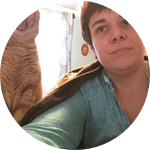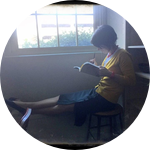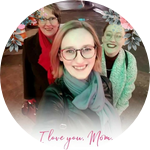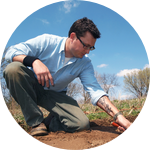Project Results
This paper is about results from the previous field season, but the implications are important for the funded project. We found that the accumulated short-term stress of multiple tattoos or hours being tattooed is associated with enhanced immune response. This suggests that culturally moderated short-term stressors are important throughout life for immunological health.
The evolutionary adaptation of body art: Tattooing as honest signaling of enhanced immune response in American Samoa
Christopher Lynn Michaela Howells David Herdrich Joseph Ioane Duffy Hudson Su'a Tupuola Fitiao
About This Project
Our team studies cultural impacts on health, specifically those of tattooing on the immune system. We expand on our previous study that suggests tattooing may "inoculate" the immune system. Our research takes place among Polynesian tattooists, who retain some of the oldest and most extensive tattooing practices in the world. We will collect saliva samples from over 100 people receiving tattoos at the Northwest Tatau Festival to examine multiple immunological factors.
Ask the Scientists
Join The DiscussionWhat is the context of this research?
We previously found a positive association between tattoo experience and relatively elevated secretory immunoglobulin A (from pre-posttest) after receiving a tattoo (Lynn et al. 2016). Immunosuppression is often a result of acute stress, so we hypothesized the elevation was due to stressor habituation, as with exercise or an inoculation. We began retesting this among Polynesian tattooists, whose practices are among the most extensive and oldest in the world. Our preliminary analysis suggests tattooing may be more like an inoculation, consistent with research indicating the immune system holds ink in place (Baranska et al. 2018). However, there are multiple immune factors at work that need to be considered to understand this biocultural interaction.
What is the significance of this project?
We will explore the possibility that tattooing is an example of cultural practices that can stimulate beneficial immune responses. Environmental stressors at different stages of life have important priming effects on the immune system. Exposure to pathogens and dirt may be important during early development in later immunological health. This "hygiene hypothesis" has been linked to overactive immune systems in developed countries and epidemics of allergies and autoimmune disease. Conversely, tattooing has been widely practiced throughout the world for thousands of years despite dangers in exposing the body to potential infection. Lower rates of autoimmune disorders in developing countries may be related to lifelong exposures to culturally-moderated environmental stressors.
What are the goals of the project?
We will collect saliva samples from approximately 100 volunteers receiving tattoos at the Northwest Tatau Festival before and after they receive tattoos to be able to analyze health factors such as immunoglobulin A, cortisol, alpha-amylase, interleukin 6, and C-reactive protein. We will also collect multiple samples throughout one day from around 25 volunteers to examine these factors at a finer grain. We will compare these biological markers to tattoo experience, which we collect via questionnaires. We ask when people received all of their tattoos, how long each tattoo took, and how much of their bodies are tattooed. We control for age, body size, health, and other personal influences on biological responses.
Budget
Your contribution will help pay for airfare to and from Tacoma, which is where the Northwest Tatau Festival will take place, and to rent a car to get us and our equipment and samples around while there. We will stay in the conference hotel so to easily access participants. We will arrive early to train student research assistants. Your contribution will help us hire local Polynesian undergraduate research assistants and be able to buy them lunch while working for us. There is a large diaspora Polynesian community in the Tacoma-Seattle area, and it is critical that we help develop young scholars within the community we are studying. Finally, your contribution will enable us to purchases data collection supplies, including saliva collection tubes, gloves, and containers for collecting and storing the biological data, and to pay for postage to ship the samples to our collaborating lab for processing.
Endorsed by
 Project Timeline
Project Timeline
This phase of our project will be completed in approximately one year of being funded. After data collection, samples will be sent to the Muehlenbein Lab at Baylor University for biological analysis. Additional funds are being sought for those analyses. We will report on those analyses at academic meetings and invited talks and begin drafting reports of our findings for scholarly and popular venues. A long-term goal is to produce a book about the biology and culture of tattooing.
May 04, 2018
Project Launched
Jun 25, 2018
Travel to the Northwest Tatau Festival in Tacoma, WA to train assistants.
Jun 29, 2018
Collect data from 100 volunteers receiving tattoos at Northwest Tatau Festival.
Jul 02, 2018
Ship samples to Baylor University for analyses.
Meet the Team
Affiliates
Team Bio
Our team has extensive experience studying cultural impacts on health, including previous research on tattooing, Polynesian communities, and immunology. Chris has conducted previous work on tattooing and immune response in the U.S. and American Samoa. Michaela has worked with Polynesian communities and in American Samoa for nearly 8 years. Michael is among the foremost anthropological immunologists in the world. All three have tattoos, and Chris and Michael consider themselves avid collectors.
Christopher Dana Lynn
I am an Associate Professor of Anthropology at the University of Alabama and director of the Human Behavioral Ecology Research Group. In addition to tattooing, I study biocultural medical anthropology, cognitive evolution, cooperation, and focused attention, which ranges from research on Pentecostal speaking in tongues to fireside relaxation. I also coordinate an outreach program called Anthropology is Elemental, which involves training undergraduates to teach anthropology and sending them out as volunteers to underrepresented schools.
I became interested in tattooing culture while living in New York City in the 1990s. Tattooing was illegal from 1961 until 1997, and tattoo studios sprang up like mushrooms after a storm when it became legal again. I played in punk rocks bands and worked in the music industry, so tattoos were all around (and on) me. The Inking of Immunity project began when a student approached me for a way to study tattooing from the perspective of medical anthropology. Various students in my lab have worked on the study over the years as it has developed.
I have two publications about our tattoo research (Lynn et al. 2016, Lynn & Medeiros 2017), have published a book on evolution education in the American South (Lynn et al. 2017) and articles on the role of campfires in cognitive evolution (Lynn 2014), the psychocultural influences of speaking in tongues among Pentecostals (Lynn et al. 2010, 2011, 2015; Lynn 2013), and several on my teaching and service (Funkhouser et al. 2016; James et al. 2015; Howells et al. 2017; Lynn et al. 2014; Spaulding et al. 2014; Stein et al. 2016). With Dr. Howells, I have an article in press about dual disease burden and Zika in American Samoa and articles in the works about structural impediments to intersectionality in Anthropology.
Finally, I am husband and proud father of three teenage boys.
Michaela Howells
I am an Assistant Professor of Anthropology in Biological Anthropology at the University of North Carolina Wilmington specializing in the intersection of biology and culture. I am particularly interested in social determinants of health surrounding human development.
I am the director of the GAPS (Growth Adaptation Pregnancy Stress) Lab where we ask questions about human adaptations across the globe. I have conducted research in American Samoa for the past 7 years, and have co-directed a field school in Bali Indonesia for the past 3 years.
I am a Seattle native, and an avid swing dancer.
Additional Information
There are many tattoo festivals around the world, but we focus on Polynesian tattooing because it is among the oldest extant tattoo cultures in the world. Polynesian tattooing is still administered using traditional hand tapping methods, alongside contemporary electric methods, as well as with modified traditional tools. Polynesians are frequently extensively tattooed, and receiving a traditional tattoo has tremendous cultural meaning and importance. Thus, Polynesian practices provide a window into the historical aspects of tattooing, as well as an opportunity to test numerous aspects that may have different biological influences. While our some of our previous research has been conducted in the Samoan Islands, we have been invited by the Samoan hosts to the Northwest Tatau Festival in Tacoma, Washington as "official scientists" of the festival. There are numerous Polynesian diaspora communities in the continental U.S. that also maintain traditional and modern tattooing cultures. There will be nearly 100 Polynesian tattoo artists at the festival tattooing people from all over the world.
Project Backers
- 112Backers
- 105%Funded
- $6,304Total Donations
- $56.29Average Donation











